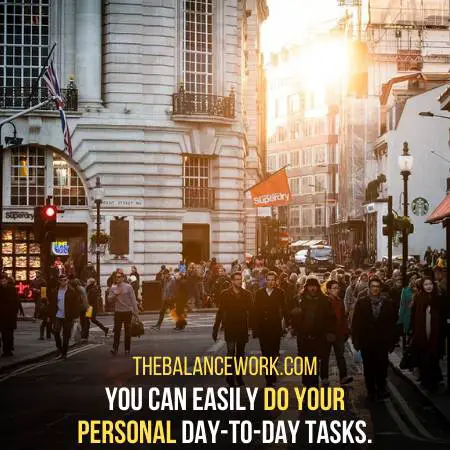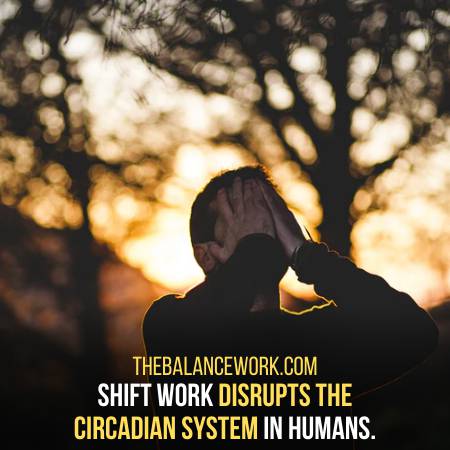If you’ve started your job hunt, or you’re preparing the schedule for your new position. You must have come across the term “second shift.”
It’s a ground reality that no person can work for 24 hours a day. So companies split the schedule into different shifts.
These shifts expand over a particular time frame every day.
What Is Second Shift – 7 Ultimate Pros
The second shift is the one that immediately follows the morning shift. The working hours for the second shift can vary according to the position you got hired for.
It generally starts in the afternoon and ends before midnight. However, the most common time is from 4 pm to 12 am.
Here are some advantages of a second shift.
1. More Time For Appointments
The majority of your daytime is free, so you have more time to attend your appointments. You don’t face the worry of planning your appointments around your work schedule.

People working in the second shift can better plan their schedule than in regular hours.
It’ll be easy to go to the doctor, do grocery shopping, and even running errands will be a breeze.
Most of the second shifts end around 1 am. So you’ll have time to sleep before starting the next day.
2. What Is Second Shift – Less-Rush-Hour Traffic
Working in a second shift, you’ll most probably clock out around 1 am. It means you can easily avoid morning rush hour headaches.
You won’t have to wait in traffic jams and worry about getting to work on time.
There are no gridlocks and crowded buses around the evening. One more advantage depends on the area where you live.
Public transport fares and tolls are less during the non-peak hours. So working in a second-round can save your money too.
3. You Can Have An Easy Childcare Schedule
Parents find second shifts ideal because they can take care of their children during the day.

Both partners can also split the time and duties. The first partner comes home and takes care of the kids, while the second prepares to leave for work.
It’s an excellent opportunity to save the childcare costs.
4. What Is Second Shift – You Can Make More Money
Most of the time, employers put a premium on the pay rates of second shifts. They do this to attract more people towards it.
Even the companies add a shift differential to your base rate. However, it can vary from company to company; there’s an average increase of 10% in the base rate.
You must get interested in working a second shift now. Don’t wait and get a job there.
5. You Get Free Business Hours
Most of the companies are working during regular business hours. It’s the time when first workers are on their duty.
However, if you work in the second shift, you can do your personal chores easily.

For instance, you can go shopping as markets won’t get closed when you’re off your work.
So working second shifts makes it easier to get your life together.
6. Second Shift Allows An Easier Pet Care
If you’ve ever had pets, you must know how your life revolves around their needs.
It’s your responsibility to take care of their feeding schedule and training sessions.
Even if you live in a country where the sunset is around 4 pm, you can make the most out of your day.
You can go for a long walk with your pet and prepare them for a nap before leaving for work.
7. There Are Fewer Workplace Distractions During Second Shift
Morning shifts are known to be busier and chaotic as more people are working.
The higher management will be busy with paperwork during the early morning hours. There might be a manager standing at your head all the time.

Working in second shifts, you can better focus on your goals. There’ll be less rush around the office.
You won’t have to bear manager, customers, dealers, and other distractions.
Cons Of Working In A Second Shift
Millions of people work in second shifts. Some of them tend to thrive during the second time hours or even later than that.
People prefer alternative nighttime jobs over the traditional early morning jobs.
But these jobs aren’t for everyone. Employees face unfavorable working conditions or a decline in their physical health.
1. Second Shift Can Damage Your Brain Function
The second time jobs make you sleep deprived. And sleep links to a host of brain functionality problems.

According to a study, second time workers scored lower in tests because of their memory.
Their processing speed also lowers down, and their brainpower weakens.
2. It Hurts Your Sleep Schedule
Working in shifts can hurt your sleep schedule. It happens more when you aren’t working consistent hours.
People working in shifts have lower serotonin levels than the ones in non-shift jobs.
This lower level of serotonin affects your sleeping pattern.
3. Shift Works Leads To Mental Health Issues
Shift work badly affects your mental health too. There’s a disruption in the circadian system of humans when they don’t get enough sleep.
With that disruption, there’s a disturbance in the release of hormones. And it leads to depression.

It also increases the lifetime risk of major depressive disorder. In vulnerable individuals, it increases the risk of developing mood disorders.
4. Leads To Physical Health Issues
Not getting enough sleep or irregular sleep can take a toll on your mental health.
Irregular sleep patterns also bring a change in your appetite. It leads to more issues like metabolic ones.
People working in shifts develop higher levels of triglycerides than ones in regular jobs.
Shift workers are also known to have lower levels of leptin. It’s a hormone responsible for weight, and such conditions affect blood levels.
Also, there’s a higher risk of heart attacks in shift workers because shift work takes a toll on their hearts too.
5. Second Shift Links To Cancer In Women
Working till late at night somehow links to cancer in women. Working in a second shift increases skin cancer risk by 41% and breast cancer by 32%.

Also, female nurses working night shifts are known to have an increased risk of breast cancer.
These increased rates and risks of different cancers are more in night shift workers.
What Shift Works For You
It’s an important decision to choose a shift schedule that matches your needs. Shifts have a significant effect on how do we live our lives.
Every shift has its own pros and cons that you should consider before making a decision.
First of all, think about what suits your current lifestyle and preferences. You can’t get successful as a border collie if you’re a couch potato.
So know yourself first! And don’t go for morning shifts if you’re a night owl.
Consider these points while deciding a shift for yourself.
1. Pay Differentials
Less notable shifts like the second shift offer higher pay for people working them.
For instance, a second shifter may get a dollar more per hour than the first shifter.
If you want to earn more, then calculate the difference between different shifts. And then decide what works best for your budget.
2. Consider Your Sleep Schedule
It’s a must to know your sleep schedule before you decide between the shifts types.
It will be ideal for working in a first shift if you’re naturally an early bird.

However, if you’re a night owl and work the first shift, you’ll have to wake up early. Also, you’ll be sacrificing your precious sleeping hours.
Even if the first shift pays more than the second shift, it’s not worth the effort.
3. Know Your Social Life
Being a social butterfly, you must love to spend time with your friends. If this is the case, then don’t go for the weekend or night shifts.
Second shifts are usually isolating, and you might end up having no social life.
However, these shifts are good for introverts as they can get a peaceful alone time.
So consider your social life before you choose a schedule.
4. Remember Your Responsibilities
Having children and pets will affect your decision. Your working hours will leave an impact on how you’re able to take care of them.

You can select the first shift if you have a school-going kid. And it’s better to go for a second one to look after your toddler.
Consider how you take care of your responsibilities and how your schedule will affect it.
5. Scheduling Potential
If you work on specific hours, it will be difficult for you to plan your future activities.
For instance, working in the first shift, you won’t get the time to go to the bank. Or a person with a rotating schedule doesn’t know when to plan a new year party.
So choose your shift schedule wisely because it can impact your normal schedule.
Frequently Asked Questions
What Does The Second Shift Mean?
Second shifts bases on the hours after 5 pm. Usually, the employees clock in around 4–5 pm and clock out around 1 am. It offers benefits like you won't have to suffer the early morning rush.
Is Working The Second Shift Well?
People can have different reasons to take a second shift. These schedules make the sleep pattern conducive to get the right amount of sleep. When you get off work at midnight, there are no distractions to keep you from going to bed.
Which Is The Better First Or Second Shift?
First shift people are more social as compared to second ones. They socialize with the management, interact with each other and the customers. Second shift workers are slackers of productivity and are the least social.
What Is The Healthiest Shift To Work?
Generally, 8-hour shifts get preference over 12-hour shifts. According to physiology, morning shifts should start not earlier than 8 am. It's the best fit for circadian rhythmicity and regulates the metabolic system.
Conclusion
Millions of people work in shift jobs all around the world in different fields. All these shifts have their respective pros and cons.
It’s your job to decide the best fit for you. Analyze yourself and see how you work at your best. What are the hours when you’re most productive during the day?
<p>Also, keep in mind how you’ll be managing your personal life along with your schedule.You can share your thoughts in the comment section below.
Last Updated on 1 year by Shahzaib Arshad
- 7 Jobs For People With Cerebral Palsy – Tips To Manage Yourself - October 6, 2022
- 15 Easy-On-Hand Jobs For People With Chronic Fatigue In 2022 - October 2, 2022
- Top 9 Low-Stress Jobs For People With Agoraphobia - October 1, 2022